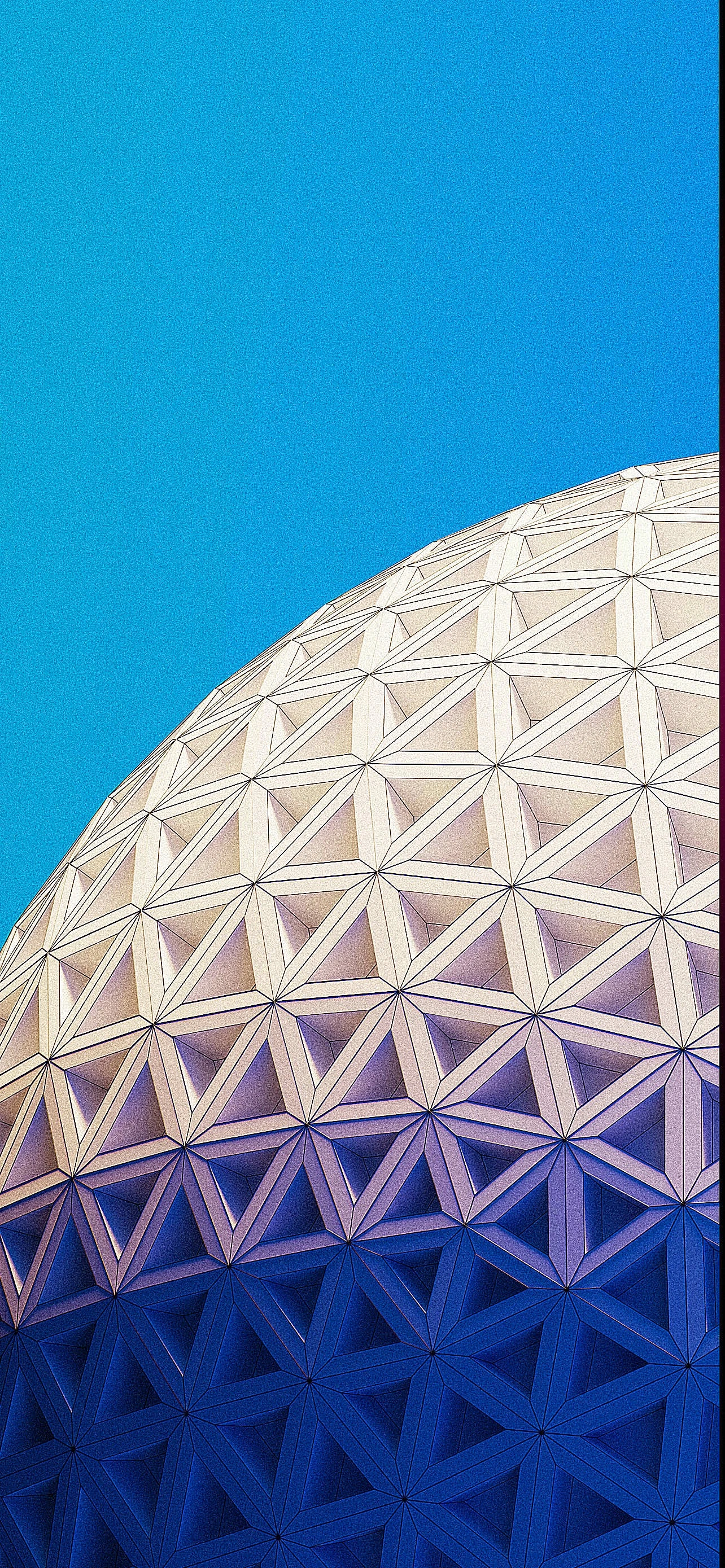Using a social perspective to autism, I would appreciate if there were a way to classify someone as autistic without calling it a disorder. Yes, we have difficulties, but from a social perspective, a lot of them come from society being structured to meet the needs of allistics. They get guidance, acceptance, and ultimately privilege of a world that is designed for them, while we have to try to meet their expectations. From this perspective, we’re not disordered, but oppressed/marginalized. How does that make us disordered?
I agree that there are different levels of functioning, and that some individuals might meet criteria for a disorder due to autism spectrum characteristics, so that would be valid. However, many individuals would function quite well in a setting that was designed to raise, educate, and accommodate autistic brains.
Anyone have any insight or ideas on this?
You do realize the word has a meaning?
“an illness or condition that disrupts normal physical or mental functions”
Generally people are born with 4 limbs because that is the normal, if you are born without them it’s abnormal you need to use words to classify things, the world operates on the norm… it wouldn’t make sense to make all cars be only able to operate for people who were born without limbs
Saying that, just because you have a disorder doesn’t make you any less of a person, anyone that thinks that is a moron… basically don’t get hung up on a word, you had no choice in your biology/birth you just got what you got
They way you describe it as being oppressed or marginalized you are gonna be well on your way to always being a victim if you want to frame your worldview that way
I mostly agree, except for the last part about marginalization. The idea you can always overcome whatever disability/disorder/whatever with hard work and the right mindset is not accurate at all. And that’s not you wanting to be a victim, it’s you advocating for what you need. Accommodations exist for everyone, they just cater to abled/neurotypical people instead. Once I finally admitted to myself I was disabled and stopped trying to live my life like I am 100% able bodied improved my life A LOT.
And disabled/chronically ill/neurodivergent people DO face a lot of discrimination regardless of if you want to admit it or not. We should be fighting for improvement in treatment, acknowledging people treat you like less of a person doesn’t mean you actually are less of a person. ESPECIALLY in the current political climate… once LGBT+ people are dehumanized sufficiently disabled people are going to be next.
I can see how you interpreted that last part that way I didn’t mean it like that, what I was trying to say is I’m arguing that the word disorder is strictly that it’s a genetic disorder and having it doesn’t make you any less of a person it’s a biological issue
I’m not advocating a positive mindset cures all (otherwise depression and anxiety wouldn’t exist) and people with disabilities don’t experience hardships, of course they do but at the same time you are a person that can try to not allow others to dictate your feelings, life is hard enough as it is don’t let someone who looks down upon you determine your worth as their opinion is just that… an opinion
Generally speaking, the DSM classifies things as “Disorders” if they affect your ability to function day to day. It’s language that helps justify accomodations to employers and to otherwise justify that help is needed.
As a person with ADHD, I totally hear you.
You’re right that in a different world, built for any particular neurodivergence, the balance of challenges would be different.
For me though, I’ve learned to acknowledge that no fictional world-building could make me better at remembering names, faces, birthdays, the stories I’ve already told someone, or keep me from burning out my interest in new passions.
At the end of the day, despite people thinking I’m “smart” and getting along well with others, I’m constantly exhausted by the additional effort it takes and nobody sees the excessive downtime it takes for me to recharge.
I always think of GATTACA and how in a world of genetically modified rich people, a man has to hustle hard to blend in. It’s a constant effort 24/7 just to create the illusion that I’m operating the same as everyone else.
The other thing is that most of the socioeconomic changes that would benefit me, would also benefit everyone else. Which is good, but means the balance would not be dramatically changed.
I’ve realized my internal discomfort with acknowledging my condition as a disability, stems from believing a disability makes me lesser. What has alleviated that discomfort is realizing that’s not how people see each other in real life (in general).
My sense of being lesser, of unfair struggle, comes from capitalism exclusively valuing persons/things that best grow the wealth if those with capital.
I’m not lesser because I’m a bad person, or a stupid person. I FEEL lesser because the world I live in let’s people die when they can’t afford a hospital visit, and only values human life to the extent that it makes rich people richer.
It doesn’t even matter if you bring greater value to the world with your art, if capitalists can’t monetize it for themselves.
As capitalism’s stranglehold tightens on everybody exponentially, the rest of the world is starting to get a taste if disenfranchisement for themselves. As more people recognize the root of so many problems, people will continue pushing for more radical change.
We might not live to see the best outcome of this fight, but know that you aren’t fighting you struggles alone and your obstacles aren’t your fault.
deleted by creator
I think you make some valid points, but I think that society shouldn’t depend on the term “disorder” to provide accommodations. If I have a friend that says he doesn’t like dogs, I don’t require that he have a dog phobia diagnosis to put my dog in another room when he comes over. Similarly, if someone were to be classified as Autistic Neurotype, that could be sufficient enough to provide accommodations to meet their needs. I’m also not advocating against the use of the term disorder. I think that should be a personal option that someone could choose.
Additionally, while some may consider me a leader, my approach is to solely moderate this community by applying the rules and help foster engagement, discussions on difficult topics, and growth while maintaining the respectful culture we’ve developed. If we start limiting topics or judging users for their innocent messages, then we discourage sincerity and engagement. Some topics are going to be controversial, and this is a place for those discussions. Otherwise, users might go to less healthy settings to address them or not address them at all.
I’m autistic just like everyone else, and will make my social mistakes. It’s happened before, and it’s going to happen again. I would appreciate some compassion and leniency with my engagement in the community if I make any mistakes or offensive remarks. I’m trying my best and only want good things for us.
Its a disorder, not calling it one is not making it any less of a disorder.
I think it’s probably helpful to put words like ‘normal’ into their proper context- it’s a statistics term, not a baseline from whence deviation is morally fraught or anything.
We’re different, not worse.
Consider, if you will, the hypothetical in which you, a normal healthy human, visit Krypton and discover that the doors to their buildings are all high up, no need for stairs because *normal *people there can fly. In this sense, you are not accommodated in exactly the same way that a wheelchair-bound person is not accommodated when the stairs into our buildings aren’t accompanied by a ramp.
On Krypton, you are handicapped not because of how you are, but because they don’t accommodate that. On Earth, the wheelchair-bound person is handicapped because we don’t always accommodate their needs. In neurotypical culture, being different only becomes a handicap when the people around you are unable or unwilling to accommodate you being you.
We didn’t get the same degree of neural pruning when it was time for neurotypicals to get that, and it means we tend to process substantially more information- and the things our brain picks out as interesting aren’t always the normal, expected ones.
The ‘disorder’ arises only when other people can’t meet you halfway, it’s not you.
I love your example and they way you conceptualized it. Keep fighting the good fight. Thank you very much!
deleted by creator
I respectfully disagree. If no one ever questioned society there would be no progress. Society is constituted by people and people can change their minds, that’s how progress happens. It’s why gay marriage is legal in so many countries and women and black people have equal rights (at least in law).
A disorder is something that makes it hard do function in current society. There are some autistics who would have difficulties in nearly any society but one could argue that it’s mostly due to comorbidities. Now the key to not being disordered for the rest of us is changing society so that we can live without being disabled by our environment. That change won’t happen without massive organized protest and it won’t be easy.
There are some autistics who would have difficulties in nearly any society but one could argue that it’s mostly due to comorbidities.
That’s such a good point! One could argue that an autistic person has trouble socializing not directly because of their autistic traits, but because allistic society has bullied them enough to develop social anxiety. In this case, the actual “disorder” that is preventing socialization is social anxiety, but the root cause was allistic bullying. Should allistic culture change to accept and embrace autistic traits, then there would be no problem, and the autistic person wouldn’t be considered disordered. Is that in line with your argument?
Those are not the only problems caused mainly by an overly allistic culture but, yes that’s the direction I was going with my argument.
I would appreciate classification and diagnosis of more neurotypical quirks as disorders.
A flip in mentality, where common behaviors that are more or less detrimental are actually seen as disorders and not just the common baseline that you can either be worse than or better than.
Like you struggle to properly understand technical/nerdy things? That’s a disorder. Oh, you’re superstitious? That’s a disorder. Of course, we’d need to also frame the entire thing around a different word than disorder, as it just means different from normal and despite the actual colloquial understanding it’s technically not supposed to make a value judgement.
I’d be very interested to hear your suggestions on what could be seen as a neurotypical disorder/flaw.
That’s an interesting idea! Perhaps, the term would be “atypical” or something like that? Also, what do you think this approach would achieve? Perhaps more accommodations, understanding, or compassion for quirks?
My first reaction to the idea is that it would result in a lot of people getting diagnoses and may dilute the value/strength that the diagnosis carries, so maybe people would take it less seriously. But, if implemented in an effective manner, it may turn out to increase awareness and compassion. However, I’m interested in your thoughts to develop a more concrete personal stance on it.
I am actually thinking in the opposite direction, of choosing a word that makes a value judgment, and applying that to negative neurotypical traits.
I don’t disagree that neurodivergent people would have a way better time if people/society took them into consideration more. But I am low support needs and still consider it a disorder. My boyfriend has ADHD and agrees. While there are a lot of things that would be fixed by having sensory friendly environments for example, there are still a lot of things about being autistic that hinder me that I wish would go away regardless of what accommodations exist.
deleted by creator
I would highly recommend you stop speaking for other autistic and ADHD people. If you think accommodations can help you with everything, that’s great. I’m not doubting that. But it’s ignorant as fuck to assume that your experience is the one true experience and you already know my entire life experience and autistic traits to be able to correct me like that.
Let other autistic and ADHD people speak for themselves. We are more than capable.
deleted by creator
deleted by creator
I feel like this is just a step toward throwing out the classification and description of individuals in terms of social norms and averages. Like, however it came to be (and I’m skeptical of your assertion that society has somehow been fashioned - presumably on purpose? - “to meet the needs of [so-called] allistics”), the society in which we live has bell curve distributions of many personality traits and capabilities and interests and on and on.
There is such a thing as the middle of the bell curve, the 1 standard deviation from the mean, etc. It’s useful to call that something. We’ve called it “normal” or “typical” or whatever. And so people in the 2 std dev and higher bands are increasing magnitudes of “abnormal” or “atypical.” So what?
Well, since time immemorial, being different could be dangerous to the survival of the group. So being different became pejorative. Only in the past couple hundred years have we began to appreciate that creative genius is almost always associated with “atypical” people. (Destructive genius, too.)
I think we’re going through a time now where we’re acknowledging that maybe more people have always been “atypical” but they concealed it for various reasons. I see my kids’ generation as being particularly open to the variation that’s apparently pretty natural in our species (or driven by microplastics and forever chemicals).
I don’t think doing away with statistical analysis of populations is the way to go, though. A better approach, to my mind, is to do away with the negative connotation that still accompanies the diagnosis of being 2 or more standard deviations away from the mean. Certainly it’s not coming up with a slew of new terms to replace “normal” or “typical.”
deleted by creator
deleted by creator
deleted by creator
Once again back to words… moron is a word, I know some people can’t handle certain words but that doesn’t make them not real and I have no problems calling someone that in the context I used, if someone judged you for being autistic then yes I believe them to be a moron as it is a stupid position to take
Yes certain neurotypes aren’t normal and let me make this clear that doesn’t reflect on the person as it has absolutely nothing to do with you it’s not a choice if you have 100 people and they are born without genetic abnormalities and you have 1 person who is born with an abnormality then yes they aren’t part of the norm that’s just how biology works the human race wouldn’t exist otherwise. I’m sorry if you don’t think that’s fair or like it, science doesn’t care about that, you think that including the difficulties is part of the disorder it’s not, that’s just you projecting that, the disorder is the genetic abnormality not the life you lead being autistic and having to deal with a normal world
Words matter, otherwise verbal assault wouldn’t constitute a hate crime (at least in the UK). You used an ableist word and that matters. The word has an interesting history, in case anyone is interested (see below) and using it is ableist given it used to be a psychiatric classification. I am assuming you wouldn’t use the ‘F’ word to describe gay people or the ‘N’ word to describe black people. Those are just words, too, what makes them different?
https://www.teenvogue.com/story/the-sinister-history-of-the-word-moron-explained
Also, taking the “science doesn’t care about your feelings” line of thinking is really lazy. We don’t have to keep the status quo. In fact, it’s generally good if we don’t. I can see from your responses that you aren’t interested in discussion, so I’m leaving it here. It’s OK to be wrong about things sometimes. Maybe you are wrong about this. Maybe not, but maybe you are.
I do agree with you words do matter that was my entire point, a disorder is not a bad word it’s a technical term, do we need to make up a new word because it has a stigma attached to it for some people? As far as moron goes what words that you don’t like are next is idiot gonna be on the chopping block? Dim witted? Should I spell it like this? m*ron does that make it so it’s not the same word and doesn’t hurt people? Sometimes policing what other people say can go too far you saying ableist could be bothersome to me but I’m not gonna tell you that you can’t say that
Comparing moron and the N word is a stretch but hey words are hurtful to you personally I can’t change that, good luck navigating life if that is going to set you off, not everyone is gonna be nice or agree with you that’s life though
Pretty sure scientifically proven facts are truths, unless they are disproven or the methodology is flawed if that’s lazy then I don’t know what to say lol
I do agree with you on my possibly being wrong, I don’t have a problem admitting when I’m wrong, on the flip side maybe, just maybe you too are wrong







